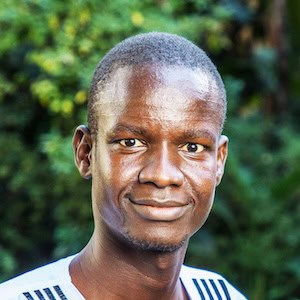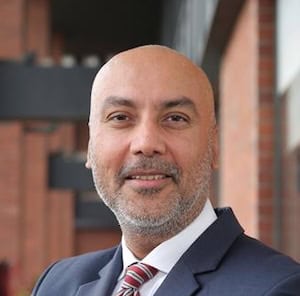-
India’s Blanket Approach to Financial Inclusion Is Leaving Women Behind: Here Are Four Ways to Close the Gender Gap
India's Pradhan Mantri Jan Dhan Yojana program has been a game-changer for financial inclusion in the country. But according to Akhand Jyoti Tiwari, Sonal Jaitly and Saloni Tandon at MSC, the campaign faces considerable challenges, as evidenced by India's substantial gender gap in account ownership and usage. They argue that the program's blanket approach has contributed to these gaps, by overlooking women’s unique needs while targeting the population at large. They explore four things the country can do to better enhance the financial inclusion of women.
- Categories
- Finance, Impact Assessment, Technology
-
Building a Transformative Gender Approach into Graduation Programs: Lessons Learned from a Three-Year Initiative in Latin America
Latin America is home to 86 million people living in extreme poverty – and women in the region are particularly impacted. Graduation programs have shown their effectiveness at addressing the multi-dimensional challenges of poverty, but Laura Morínigo and Carolina de Miranda at Fundación Capital argue that these programs must do more to address gender inequalities. They discuss the results of an initiative that integrated a transformative gender approach into poverty graduation, and explore how this approach can amplify these programs' impact on women.
- Categories
- Finance, Technology
-
The Overlooked Needs of India’s SMEs: Why Knowledge, Emotional and Relationship Capital are Key to their Pandemic Recovery and Long-Term Competitiveness
Small and medium-sized enterprises (SMEs) in India – and around the world – have been harshly impacted by the COVID-19 pandemic. According to Samir Sathe at Wadhwani Advantage, these enterprises will need new sources of competitive advantage – including knowledge, emotional and relationship capital – if they hope to recover and grow. He explains why these alternative forms of capital are essential to running a small business, and explores how current learning and development efforts are falling short in meeting SMEs' unique needs.
- Categories
- Coronavirus
-
Protecting Clients in a Crisis: Five Lessons BRAC Learned While Re-Engineering its Microlending Strategy During COVID-19
COVID-19 has had a harsh impact on small businesses and the people who depend on them – and this impact has also affected their lending institutions. As Sahed Shams Azad at BRAC Microfinance explains, pandemic-related business closures have prevented many borrowers from making repayments, disrupting their lives – and BRAC Microfinance's nearly billion-dollar monthly lending cycle. He explores the dramatic adjustments the organization has made to its operations in response to this crisis, and how it has protected its clients' best interests throughout the process.
- Categories
- Coronavirus, Finance
-
On the Edge of Edge: Why Advancements in Edge Computing Could Shift the Paradigm for Remote Connectivity, Internet of Things and Digital Development
Edge computing brings both computation and data storage closer to internet users: It uses servers installed on cell towers to deliver content directly to consumers’ devices, instead of transmitting it from distant hubs across a cellular network. As digital development expert Troy Etulain explains, edge computing offers compelling benefits for remote internet users, and for the development projects and businesses that hope to reach them. He explores the momentum behind this technology – and how it can be leveraged to boost rural internet connectivity and accomplish other goals.
- Categories
- Technology, Telecommunications
-
Going Farther Together: A Recent Report Explores How Partnerships are Boosting Financial Inclusion in Nigeria
Nigeria missed its central bank’s target of 80% financial inclusion by 2020, and a new target has been set for 95% inclusion by 2024. According to Olayinka David-West and Ibukun Taiwo at the Lagos Business School, partnerships are an effective way to pursue this goal and serve the 38 million citizens who lack financial access. They share findings from a recent report that explores the state of Nigeria's digital financial services market, and highlight the critical success factors that can impact the effectiveness of partnerships in advancing financial inclusion.
- Categories
- Finance, Telecommunications
-
On the Path to Self-Sufficiency: How Development Agencies Can Support the Local Production of Health Products in Africa
Africa imports 99% of the routine vaccines consumed on the continent, and most sub-Saharan African countries import as much as 70-90% of all medicines used. As Biodun Awosusi at Health Systems and Development Enterprise points out, the ongoing COVID-19 pandemic has shown the risks of this over-dependence on imports for vital health supplies. But fortunately, he says, Africa is moving to increase its domestic manufacturing capabilities for health commodities. He explores how development agencies can support these efforts.
- Categories
- Health Care
-
Marketing Nutritious Food Products at the Last 100 Meters: A New Report Explores the Impact of Direct Sales Forces
Nearly 800 million people globally are undernourished, and over 2 billion lack year-round access to adequate food. Many companies have attempted to address this issue by marketing affordable, nutritious food products in developing countries. But as Lucie Klarsfeld McGrath and Louise Berthault at Hystra point out, few of these companies focus on ensuring that their nutritious products are consumed consistently in sufficient quantities to produce positive health impacts. They share new research on how companies can leverage direct sales forces to bring low-income customers consistent access to nutritious foods.
- Categories
- Uncategorized









